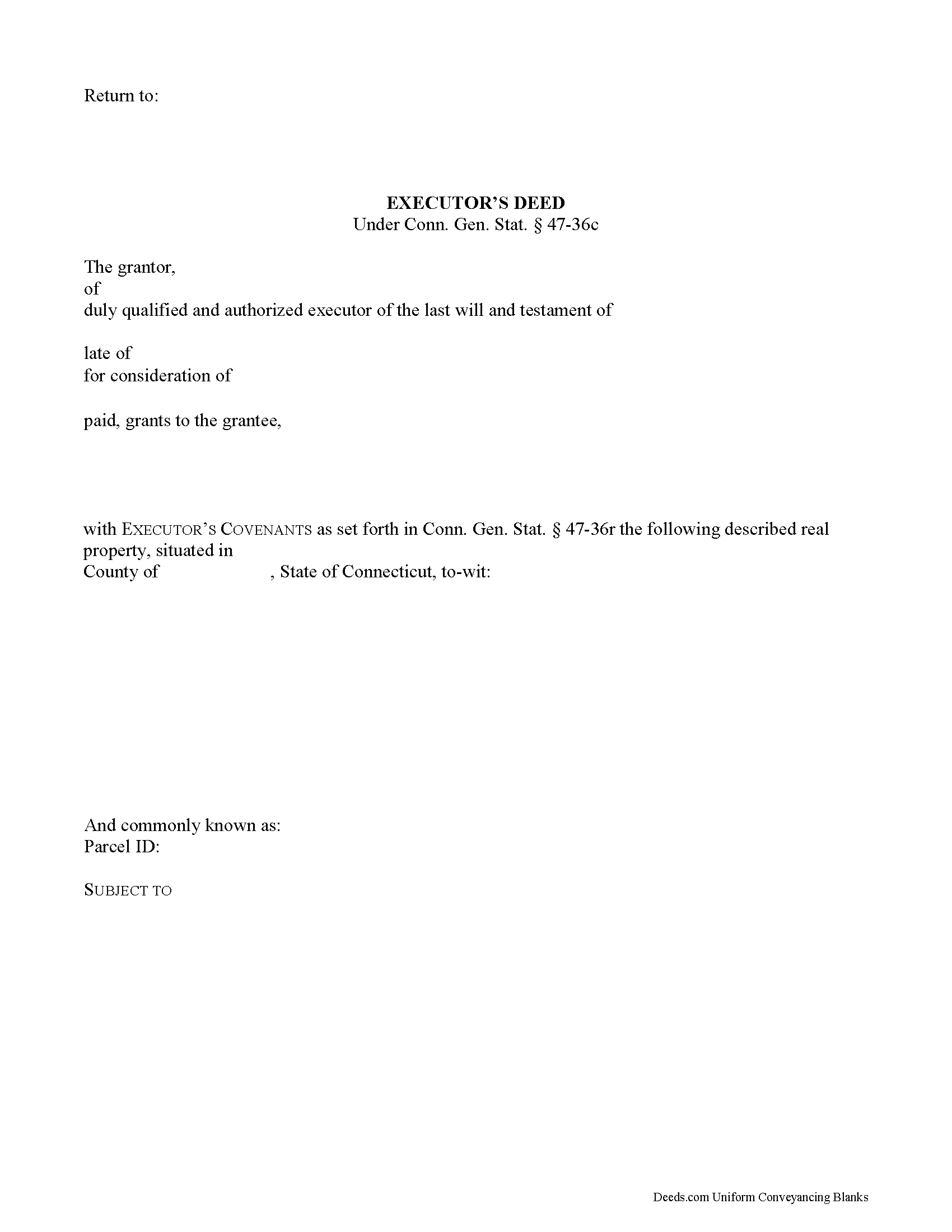Connecticut Executor Deed Forms

Connecticut Executor Deed Overview

How to Use This Form
- Select your county from the list on the left
- Download the county-specific form
- Fill in the required information
- Have the document notarized if required
- Record with your county recorder's office
As part of the probate process, a personal representative's duties include transferring a decedent's real property to those entitled to receive it. A personal representative may also sell real property in order to pay the estate's debts.
An executor is a personal representative designated by a decedent's will to settle the decedent's estate. Use an executor's deed to convey fee simple title to a grantee, who is either a beneficiary, heir, or buyer.
The deed contains covenants that the grantor is qualified to act as executor of the decedent's estate; is authorized to bargain and sell the property pursuant to the terms of the decedent's will or by order of the probate court; and will warrant and defend the grantee's title against the claims of persons by, from, or under the grantor.
Contact an attorney with questions about executor's deeds or any other issue related to probate in Connecticut.
Important: County-Specific Forms
Our executor deed forms are specifically formatted for each county in Connecticut.
After selecting your county, you'll receive forms that meet all local recording requirements, ensuring your documents will be accepted without delays or rejection fees.
How to Use This Form
- Select your county from the list above
- Download the county-specific form
- Fill in the required information
- Have the document notarized if required
- Record with your county recorder's office
Common Uses for Executor Deed
- Transfer property between family members
- Add or remove names from property titles
- Transfer property into or out of trusts
- Correct errors in previously recorded deeds
- Gift property to others